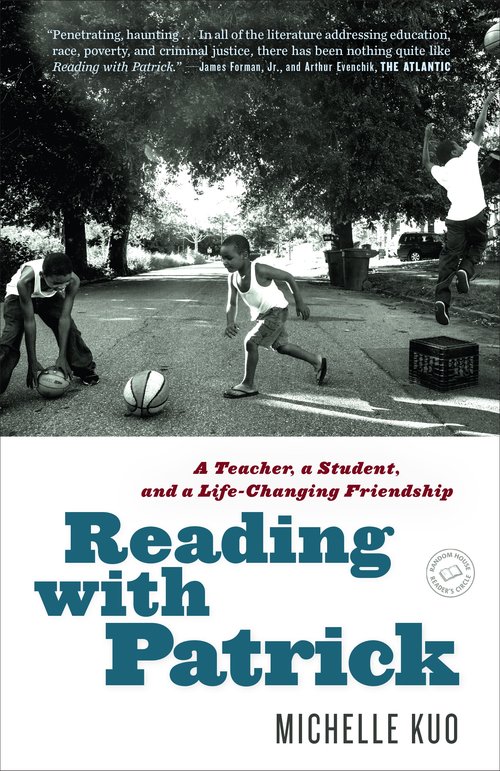Reading with Patrick: A Teacher, a Student, and a Life-changing Friendship Michelle Kuo (2017)
Washtenaw County, Michigan, selected Reading with Patrick as the “Washtenaw Reads” book for 2019, providing extra copies on library shelves so that the community can engage in discussions of the provocative issues that the book raises.
The author of Reading with Patrick, Michelle Kuo, the daughter of Taiwanese immigrants, is a Michigan native who graduated from Harvard in 2003 and then volunteered for two years with Teach for America in Helena, Arkansas, an extremely poor rural town on the Mississippi Delta.
Kuo could have completed this tough teaching assignment and then moved on. She could have kept her distance from the difficult personal lives of her middle-school students. Instead she became a friend and mentor to one particular student, Patrick Browning, and wrote this book about Patrick’s awakening to the joys of reading. Kuo initially read with Patrick during her Teach for America stint, but she returned to Helena after she completed law school, when she learned that Patrick had been arrested, charged with murder. For months, as Patrick awaited trial, Kuo visited him in jail, bringing him books and encouraging him to write.
Reading with Patrick can be disturbing, especially in its descriptions of Patrick’s imprisonment and trial. I also found the bigotry that Kuo encountered as an Asian American disheartening. But Kuo doesn’t complain about her struggles or pass judgment on the societal systems that neglected and betrayed Patrick and the other young people in Helena. In Reading with Patrick she simply tells the story and allows the obvious conclusions to come to the surface. In an interview with the New York Times, however, Kuo summarized her book:
“It’s an intimate story about the failure of the education and criminal justice systems and the legacy of slavery; about how literature is for everyone, how books connect people, and the hope that with enough openness and generosity we can do the hard work of knowing each other and ourselves.”
If you live in Washtenaw County, you can participate in Washtenaw Reads events in early 2019. If you live anywhere in the United States, you can pick up Reading with Patrick at your local library and learn about a remarkable friendship.



